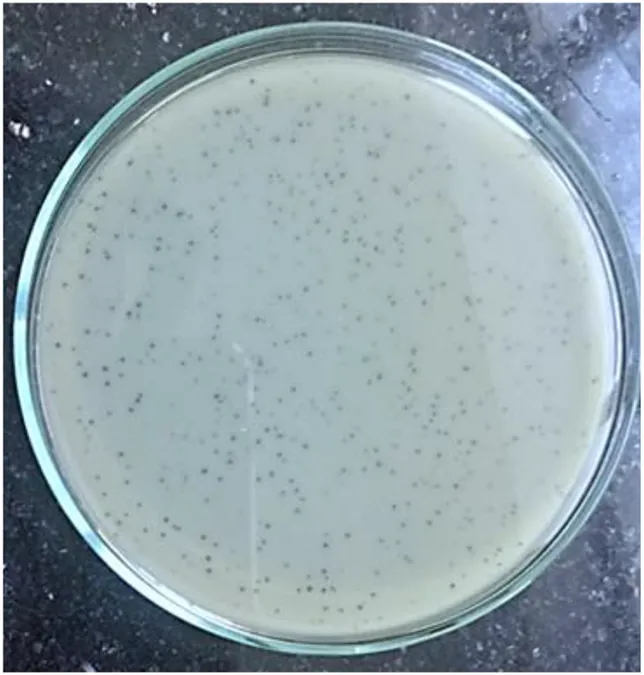
Revolutionary Phage Discovered to Combat MRSA: The Future of Antibiotic Resistance?
2024-11-08
Author: Rajesh
Revolutionary Phage Discovered to Combat MRSA: The Future of Antibiotic Resistance?
Antibiotic resistance is soaring, posing a severe threat to public health globally. The World Health Organization (WHO) has alerted us to the alarming possibility that we might soon enter a post-antibiotic era where common infections could once again become deadly. Recent studies revealed that antimicrobial resistance (AMR) was responsible for an astounding 1.27 million deaths worldwide in 2019. Projections suggest that without discovering new antibiotics by 2050, effective drugs may become extinct.
Among the culprits of antibiotic resistance is Staphylococcus aureus, particularly the methicillin-resistant strain known as MRSA. Staphylococcus aureus can cause a wide array of infections, from minor skin issues to life-threatening conditions like pneumonia and septicemia. The growing prevalence of MRSA strains has turned this opportunistic bacterium into a leading cause of nosocomial (hospital-acquired) infections and a significant community-associated pathogen. It's reported that MRSA strains are resistant to nearly all beta-lactam antibiotics, which are commonly used to treat Staphylococcal infections.
Amidst this backdrop, researchers have conducted an exciting study, isolating a highly lytic bacteriophage that demonstrates potent activity against MRSA. This phage, labeled vB_SauP_ASUmrsa123, was derived from sewage samples in Cairo, Egypt, highlighting not only the innovative use of natural resources but also the potential of phage therapy as a viable treatment alternative to antibiotics.
Isolating the Phage
In this groundbreaking study, clinical samples were collected from patients suspected of having MRSA infections at Kasr Al-Ainy Hospital. The samples underwent rigorous testing to confirm the presence of MRSA. The isolated phages showed potential when tested against various MRSA strains, effectively targeting and lysing the bacteria.
Phage Therapy: The Next Frontier in Medicine
Phages are viral entities that specifically infect bacteria and can replicate within bacterial cells, making them an attractive option in the fight against antibiotic-resistant infections. In recent years, the therapeutic potential of phages has regained momentum as researchers look for safer and more targeted treatments compared to conventional antibiotics.
The isolated phage showed a high efficiency of plating (EOP), successfully lysing 12 out of 25 MRSA strains tested in vitro. The optimal conditions for phage proliferation, including the optimal multiplicity of infection (MOI), were identified, with results indicating a maximum yield of phage activity when the MOI was set at 10.
Promising Results on Stability and Performance
This novel phage displayed remarkable stability across various temperatures and pH levels, indicating its potential applicability as a therapeutic agent. It maintained effective antibacterial activity at temperatures of up to 70 °C and across a pH range of 5 to 9. Such robust characteristics signal its readiness for future clinical trials.
Groundbreaking Findings from Genome Sequencing
The comprehensive genetic analysis revealed that phage vB_SauP_ASUmrsa123 has a genome consisting of 17,155 base pairs, characterized by 24 open reading frames (ORFs). These genetic markers are indicative of its lytic nature and suggest no potential for lysogeny, making it safer for therapeutic use.
Importantly, checks for antibiotic resistance genes and virulence factors returned negative results, confirming the phage's suitability as a therapeutic agent. The study presents vB_SauP_ASUmrsa123 as closely related to other phages, but uniquely equipped with a specific capsid protein that may enhance its effectiveness.
The Path to Safer and Effective Treatments
The alarming rise of MRSA cases, coupled with limited effective treatment options, underscores the necessity for innovative therapeutic approaches. The isolation and characterization of bacteriophages like vB_SauP_ASUmrsa123 could herald a new era in medical treatment, especially for patients suffering from stubborn MRSA infections.
As the research advances, further studies involving animal models and clinical trials are essential to determine the efficacy and safety of this phage in a clinical setting. The journey towards combating MRSA and similar infectious diseases using phage therapy looks promising and could reshape the future of medical therapeutics.
Stay tuned, because the battle against antibiotic resistance may just have found its ally in these newly discovered phages!
 Brasil (PT)
Brasil (PT)
 Canada (EN)
Canada (EN)
 Chile (ES)
Chile (ES)
 España (ES)
España (ES)
 France (FR)
France (FR)
 Hong Kong (EN)
Hong Kong (EN)
 Italia (IT)
Italia (IT)
 日本 (JA)
日本 (JA)
 Magyarország (HU)
Magyarország (HU)
 Norge (NO)
Norge (NO)
 Polska (PL)
Polska (PL)
 Schweiz (DE)
Schweiz (DE)
 Singapore (EN)
Singapore (EN)
 Sverige (SV)
Sverige (SV)
 Suomi (FI)
Suomi (FI)
 Türkiye (TR)
Türkiye (TR)